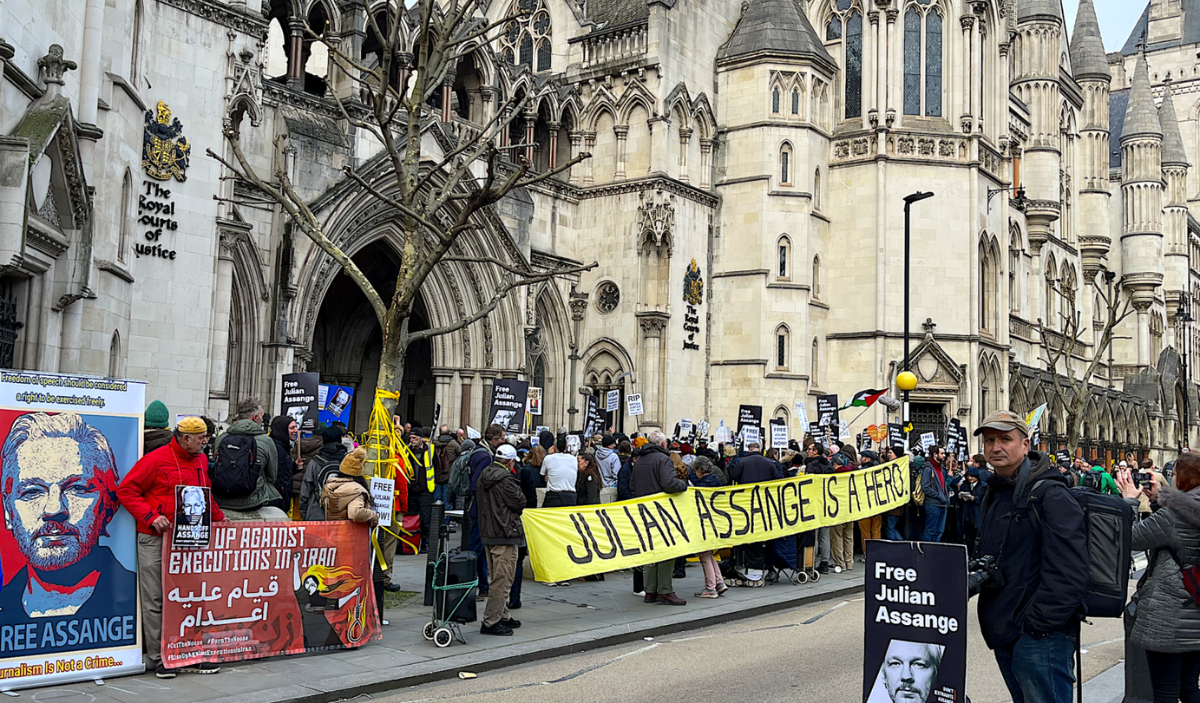
UK Court moves Assange’s extradition hearing to May 20

Today, the United Kingdom High Court of Justice granted WikiLeaks founder Julian Assange another hearing to avoid extradition to the United States.
Assange was accused of treason by the US government for publishing its war crimes committed in the Middle East.
The court ruled that on three of the nine counts Assange’s legal team asked the court to appeal on, the United States must provide “assurances” to the court, and if the court does not find them satisfactory, Assange can bring his entire appeal.
The court’s reason for such judgment stated that:
Extradition is regulated by legislation passed by Parliament: the Extradition Act 2003. The role of the Magistrates’ Court and the Secretary of State is to determine whether extradition is barred by the 2003 Act. If so, Mr Assange must be discharged. If not, his extradition must be ordered. Leave to appeal should be granted only if it is arguable
that the Magistrates’ Court or the Secretary of State was wrong.
Assange’s case is an example of criminalising journalism in the UK and the United States, in which other nations are most likely to follow suit, particularly where crimes have been committed against humanity.
However, a further hearing is scheduled on May 20 if the United States were to uphold its “assurances” as asked by Assange’s legal team, especially of meeting clients’ rights to the First Amendment would be upheld if extradited to the US.
Meanwhile, the ruling has only avoided press freedom criminalisation for now.
Read: Press Freedom: Police Summons FIJ’s Board of Trustee over “Cybercrime” Persecution
About The Author
Mayowa Durosinmi
author
M. Durosinmi is a West Africa Weekly investigative reporter covering Politics, Human Rights, Health, and Security in West Africa and the Sahel Region
Mayowa Durosinmi
M. Durosinmi is a West Africa Weekly investigative reporter covering Politics, Human Rights, Health, and Security in West Africa and the Sahel Region
Related Articles
Malian Army Says Dozens of Militants Killed in Airstrikes in Segou Region
Mali’s armed forces say they have killed about twenty suspected militants during...
ByWest Africa WeeklyFebruary 19, 2026Nigeria Approves 33 New Universities While Education Quality and Jobs Remain in Crisis
Nigeria has approved 33 new universities, bringing the total number of sanctioned...
ByWest Africa WeeklyFebruary 19, 2026Gabon Suspends Social Media “Until Further Notice” Amid Rising Unrest
Gabon’s media regulator has announced the suspension of social media platforms nationwide,...
ByWest Africa WeeklyFebruary 18, 2026Côte d’Ivoire Feeds the World’s Chocolate Industry, But When Prices Shift, Cocoa Farmers Are Left With Rotting Harvests and No Income
Côte d’Ivoire produces nearly half of the world’s cocoa, a crop that...
ByWest Africa WeeklyFebruary 18, 2026











